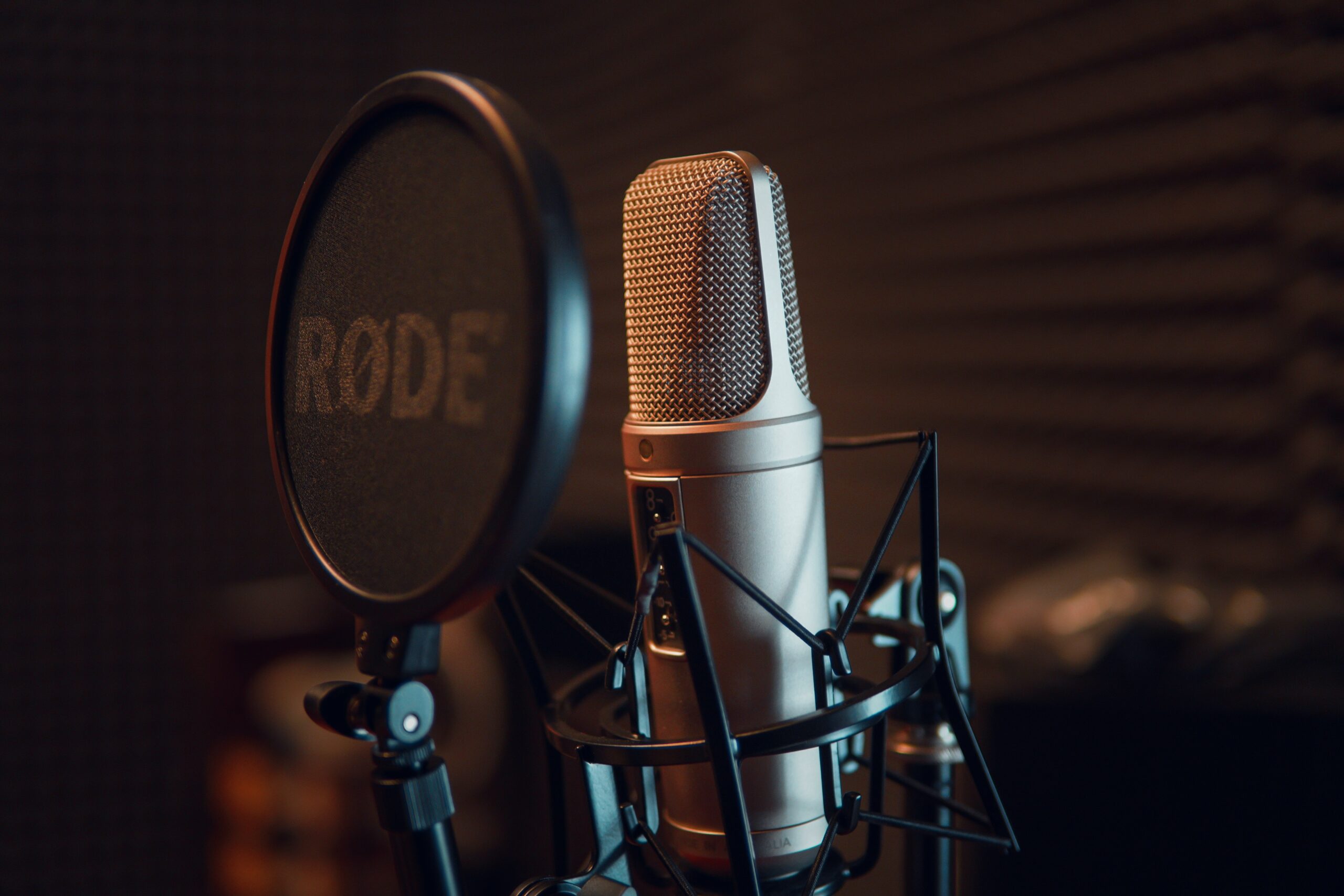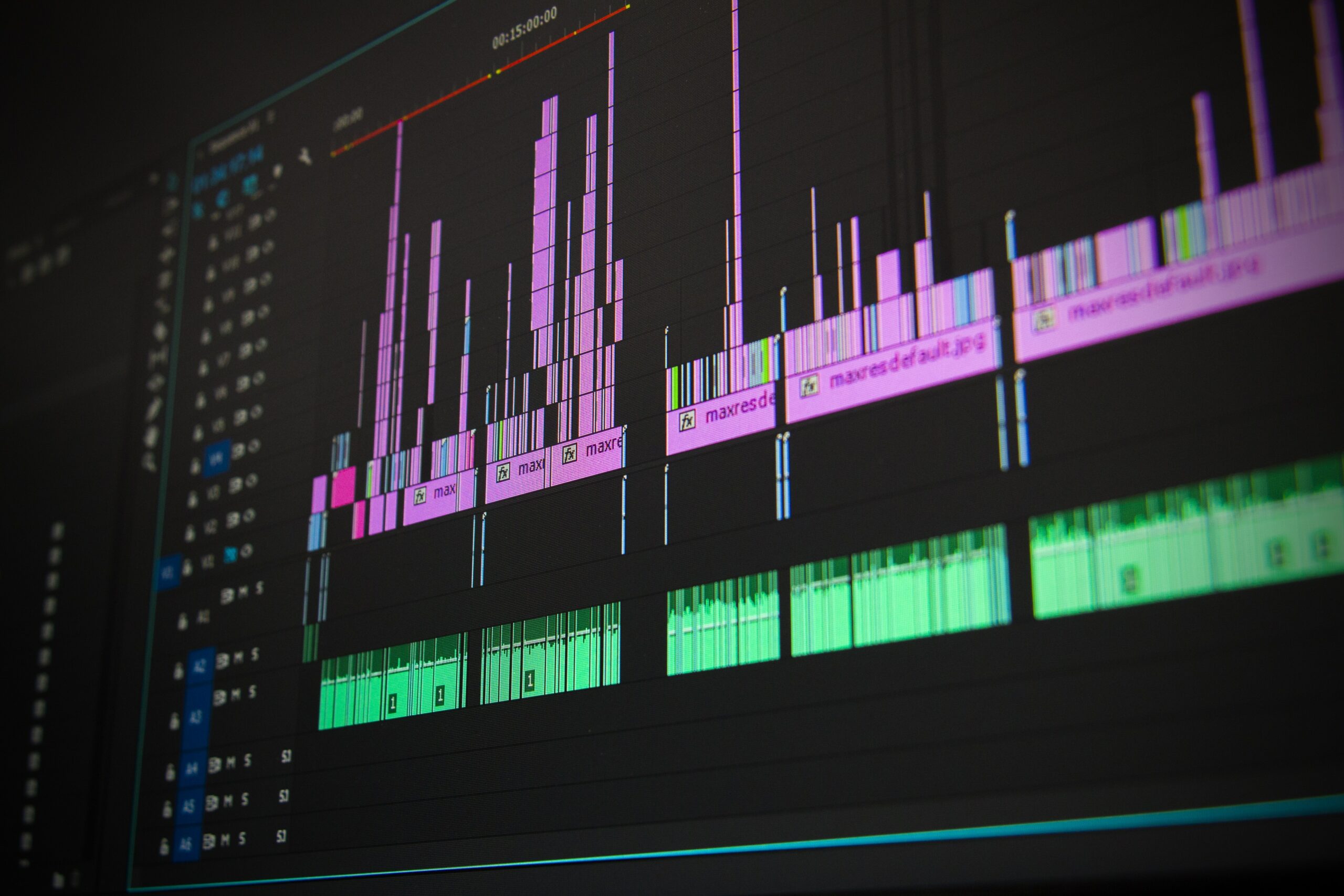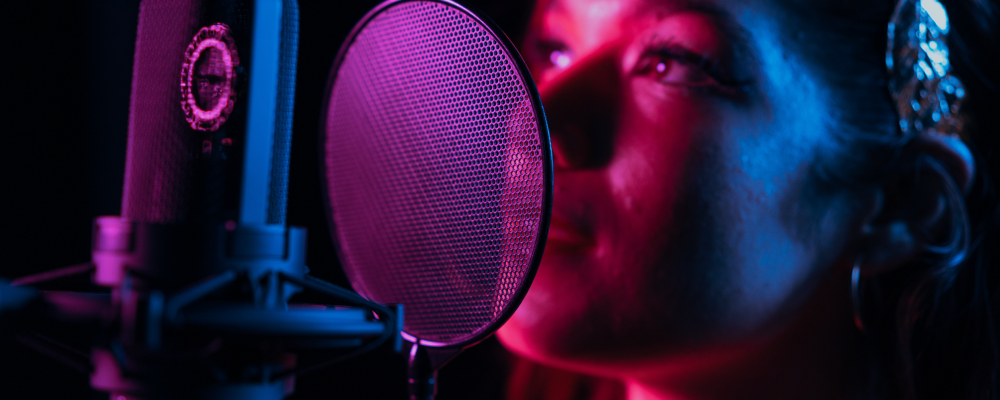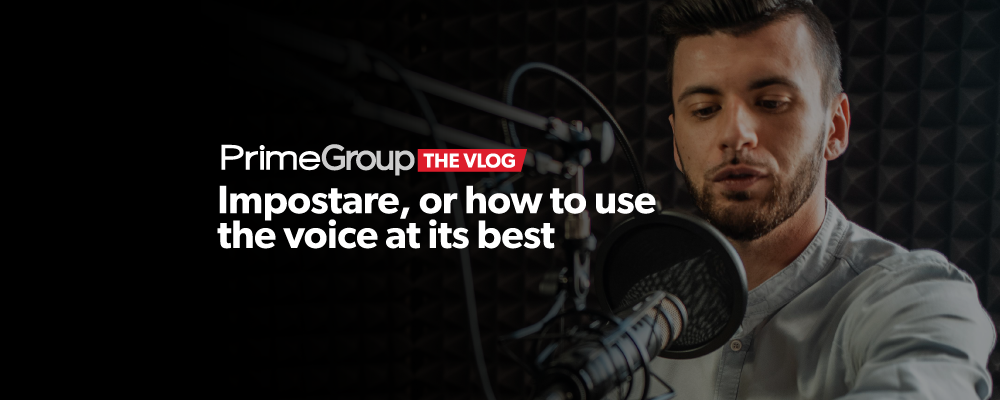Several technical steps are typically followed when recording a voice-over in a studio to ensure high-quality audio recording. The following are some of the critical technical steps involved in recording a voice-over:

Microphone selection
Choosing the right microphone for the voice-over is essential to capturing high-quality audio. Different microphones have different characteristics, such as frequency response, sensitivity, and directionality, that affect the final sound. A good recording engineer will select a microphone that best suits the voice-over artist and the project’s requirements.
Microphone placement
Once the microphone is selected, the recording engineer will place it in the best position to capture the desired sound. The distance from the microphone, the angle and direction of placement, and other factors will all be considered to ensure the best sound possible.
Preamp selection and gain staging
A preamplifier is used to amplify the microphone signal before it is recorded. The recording engineer will select the appropriate preamp and set the gain to ensure the signal is strong enough without clipping or distortion.
Monitoring
The voice-over artist will wear headphones to monitor their voice, and the recording engineer will monitor the signal in the control room. This ensures that the recording levels and sound quality are consistent throughout the recording.
Recording software and hardware
The recording will typically be done using a digital audio workstation (DAW) such as Pro Tools, Logic Pro, or Reaper. The recording engineer will set up the software to record the voice-over at the desired sample rate and bit depth and ensure that the hardware (such as the audio interface and hard drive) is properly configured.

Post-production
After the recording, the audio file will be edited, mixed, and processed to create the final product. This may involve removing unwanted noise, adjusting levels and EQ, and adding effects such as compression, reverb, or delay.
Overall, the technical steps in recording a voice-over require a good understanding of audio engineering principles and the equipment and software used in recording studios. A skilled recording engineer can optimize these technical aspects to capture a high-quality recording that sounds professional and polished.
At Prime Group, we ensure that the audio production process is carried out seamlessly, from recording to cleaning, editing, monitoring, and formatting for any platform: TV Broadcast, Internet, and Mobile.



